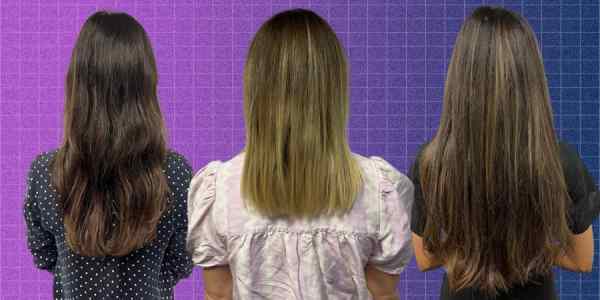Growing out a beard takes both time and patience. Unfortunately, this isn’t something you can rush but there are certain steps you can take to encourage facial hair growth. Although, one thing to keep in mind about facial hair is that ultimately it’s influenced by genetics.
Just like the hair on your head is largely governed by genetics, so is the hair on your face. So, if you’re struggling to grow facial hair, this is most likely because of your genes. But, before giving up on the dream of a beard entirely, try some of these handy tips first.
Let your facial hair do its thing
You need to give your hair some time to grow out before getting stuck in with trimmers to tidy it up. This is most definitely a case of leaving it for as long as you possibly can, which if you’re currently working from home, shouldn’t be too much of a struggle.
Beardbrand recommends leaving your facial hair alone (no trimming allowed!) for at least 30 days, which gives it some time to grow in and will allow you to see what you’re working with. If it gets itchy during this time — because chances are it will — use beard oil to hydrate your skin and soften the coarse hair coming through.
After this period of not touching it, you can then trim the facial hair on your neckline to just above your Adam’s apple. Beardbrand has a helpful video on how to trim your hair without impacting growth. At this point, you can also use scissors to trim away any stray hairs that are growing longer than others.
Don’t rely on beard growth oils and pills
There are a number of pills, lotions, oil and serums that promise to encourage beard growth but according to Healthline, these lack any sort of scientific credibility. So, it’s better not to rely on these products as they probably won’t help.
There is some evidence that vitamin D can help activate dormant hair follicles so you could consider adding a vitamin D supplement to your diet but keeping in mind the research so far is quite limited. Healthline recommends adding B vitamins like B-12, biotin or niacin supplements, which have been shown to strengthen and condition hair.
Other facts that influence facial hair growth
Genetics isn’t the only factor in your facial hair growth. In fact, your age, testosterone levels and lifestyle can play a role in your beard growing ability.
When it comes to testosterone levels, often having high levels of the hormone gives you a better chance of growing hair on your face, head and body, but according to Beardbrand, the flip side is that men with higher levels of testosterone are also more prone to dihydrotestosterone, which can cause your hair follicle to shrink and lead to baldness.
If you think there could be an issue with your hormone levels, it’s best to pay your doctor a visit to discuss your symptoms and see what can be done to help.
Leading a healthy lifestyle, which includes a balanced diet, exercise and reducing stress where possible, can also positively influence your hair growth. Strength training can help boost testosterone levels while eating foods high in protein, vitamins and minerals help to maximise growth potential.
Stress and sleep also make a big difference. Stress can affect hair growth by pushing your hair follicles into a testing phase, which according to Healthline, can stop the growth and lead to thinning hair. Sleep, on the other hand, can impact your hormones especially when you’re sleep-deprived and in turn, affect the thickness of your hair.
“Human growth hormone (HGH) is produced when we progress through normal sleep cycles. In people who get irregular, interrupted, or limited sleep, they may have lower levels of HGH. Lower levels of HGH can contribute to numerous health issues including thinning hair. As a result, getting quality sleep may be able to help reduce thinning and loss of hair,” Dr Michael Breus, known as The Sleep Doctor, told Mane Addicts.
If you’re struggling to grow facial hair, it can be helpful to pinpoint what the issue is. Is it simply that your hair is extremely slow to grow, or is it actually just not growing? Identifying this will determine whether you simply need to stick it out and the hair will eventually grow (which you should have an idea about after 30 days of no shaving) or whether you need to consult your GP about your facial hair growing options.







